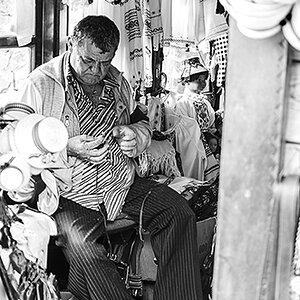Blueharon
TPF Noob!
- Joined
- Dec 14, 2014
- Messages
- 4
- Reaction score
- 0
- Can others edit my Photos
- Photos NOT OK to edit
Let me start off by saying I'm a hobbyist. Not professional. Anyway a few years ago I worked at a Walgreens photo lab. The pictures on display sucked so I asked if I could print mine for display purposes. They said yes and I could take home the prints when they were done with them. Now I found out they are selling the photos. Is it worth it to fight them? How would I go about it?













